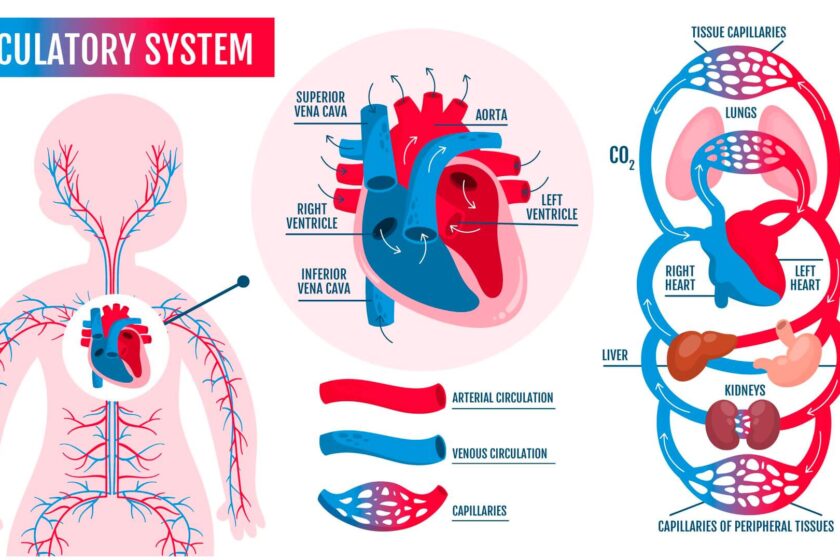
How to Seek Credible Vascular Health Info in the Digital Age
Navigating the online realm for credible vascular health information can be like finding a needle in a haystack. The digital age, while opening avenues for easy accessibility to information, has also led to the proliferation of unverified and often misleading content. Especially in a field as nuanced as vascular health, relying on the wrong information can have grave implications. But fear not! Armed with the right tools and insights, especially from professionals like Dr. Sumit Kapadia, you can traverse the digital landscape confidently.
Roadmap for Seeking Reliable Vascular Health Information in the Digital Age
Before diving deep, it’s crucial to understand the vastness of the digital ocean you’re about to explore. Recognizing the need for credible sources is paramount. The internet is brimming with websites for health, but not all are created equal. Your search should be methodical, informed, and vigilant, ensuring that you’re relying on information backed by expertise and verifiable facts, especially in intricate subjects like vascular health.
The dawn of the digital age has brought forth an explosion of health websites. As per recent studies, over 70% of Indians first turn to the internet to find answers about their health concerns before consulting a doctor. However, this can sometimes lead to misinformation. The first step, therefore, is to be aware of where you’re getting your information. Be it websites about health or blogs, knowing the source is half the battle.
Identifying Credible Sources for Health Information
Understanding the domain can give you a head start:
.gov.in identifies an Indian government agency that often provides comprehensive health guidelines and nationwide statistics.
.edu identifies educational institutions, often at the forefront of the latest research and advancements in health.
.org usually represents nonprofit organizations, like medical societies or research groups, offering research papers, studies, and expert opinions.
.com identifies commercial websites. These commercial sites, which could belong to healthcare businesses, hospitals, or clinics, need to be approached with a discerning eye. Look out for sites that regularly update their content, have professional oversight, and offer balanced, evidence-based views.
Additionally:
Professional Websites & Blogs: Senior Vascular surgeons like Dr Sumit Kapadia share their expertise, providing first-hand knowledge on vascular treatments and other health concerns.
Also Read: Vascular Surgery: Different Types of Vascular Surgeries
Fact-Checking and Cross-Referencing
Never rely on a single source. Always cross-reference facts across multiple reliable websites about health. If the majority consensus on multiple reputable sites aligns, you can be more confident about the accuracy of the information. Always diversify your sources. Refer to the ‘About Us’ page on websites to understand the professionals behind the content. Check the frequency of website updates, ensuring you’re getting the most recent and relevant information.
In an age where “fake news” is prevalent, always double-check facts. A quick way is to see if the information is consistent across multiple reputable health websites.
Relying on Expert Consensus
Social media is becoming a tool for doctors and healthcare businesses to share their knowledge. Vascular surgeons who prioritise their patients’ education often update their sites and social channels with the latest findings and research. This active digital presence underscores their commitment and expertise in their domain. While individual articles provide insights, the consensus among experts offers a broader, more reliable perspective. Look for guidelines, position statements, or reviews on vascular health topics. Healthcare businesses are increasingly marking their presence on social media. A credible professional’s social media or website is often updated with the latest findings, treatments, and guidelines in their field. If vascular surgeon regularly updates their digital platforms, it’s a positive indication of their commitment to the field and their patients.
Also Read: What is a Vascular & Endovascular Surgeon?
Leveraging Telemedicine and Healthcare App
Today, there’s no need to wait in long queues for consultations. Telemedicine platforms have bridged the geographical gap. However, telemedicine comes with its share of issues including time disparity, inability to examine as well as inappropriate surroundings. It also may not be feasible to teleconsult busy and experienced professionals.
Newer communication modes
Often, it is very difficult to talk or understand from experienced experts without an in person consultation. But with newer communication media, there have been many updates and upgradations.
For those interested in gaining more information or learning about vascular diseases, Dr Sumit Kapadia’s Vascular Helpline makes this very convenient. For quick connectivity, drop a “Hi” message to +91 9904114443 on WhatsApp (Dr Sumit Kapadia’s 24 x 7 Vascular Helpline) and navigate around to find answers to your queries ( without waiting to talk to someone). Such avenues help in automated learnings for simple queries as well as care for patients in pre and post operative period.
Seeking Second Opinions
Even after finding information, it’s prudent to seek a second opinion, especially before making decisions regarding vascular treatments. This ensures you’re on the right path and have a holistic understanding of the condition. Gathering a second or even third opinion is not about mistrust but about comprehensive understanding. Especially in the realm of vascular treatments, where procedures can be intricate, understanding all potential solutions, risks, and outcomes helps in making an informed decision. Engage with different vascular surgeons, compare their insights with your online research, and then decide on a course of action. One should check the Vascular website for the Frequently Ask Questions to understand vascular diseases and their treatment options.
- What lifestyle changes can I make to improve my condition?
- How does diet impact vascular health?
- What treatment options are available for my condition?
This information helps the vascular surgeon have a comprehensive understanding of your health.
Conclusion
In the vast digital sea of websites for health, it’s paramount to have the right tools and knowledge to find trustworthy, credible information on vascular health. By following this roadmap, you can confidently navigate the digital landscape, ensuring that you’re informed and equipped to make the best health decisions. The digital age has revolutionised how we seek and consume information. With a systematic approach, a discerning eye, and a little guidance, you can harness the vast resources of the internet to understand and manage vascular health better.
The digital age, while filled with immense information, requires discernment, especially when it comes to health. By equipping ourselves with the right knowledge, tools, and expert contacts like senior vascular surgeon Dr Sumit Kapadia, we can confidently navigate the digital health maze.
Follow us on YouTube

MBBS, MS, MRCS, DNB-Fellow
Dr. Sumit Kapadia
Dr. Sumit Kapadia / MR KAPADIA SUMIT a gold-medalist from Baroda Medical College, obtained his general surgical training and senior residency from SSG Hospital, Vadodara.

MBBS, MS, MRCS, DNB-Fellow
Dr. Sumit Kapadia
Dr. Sumit Kapadia / MR KAPADIA SUMIT a gold-medalist from Baroda Medical College, obtained his general surgical training and senior residency from SSG Hospital, Vadodara.




